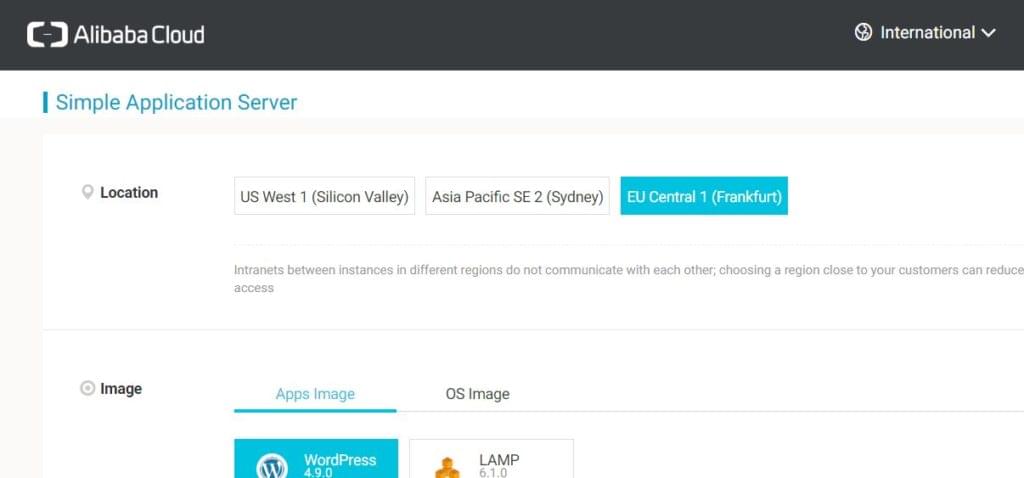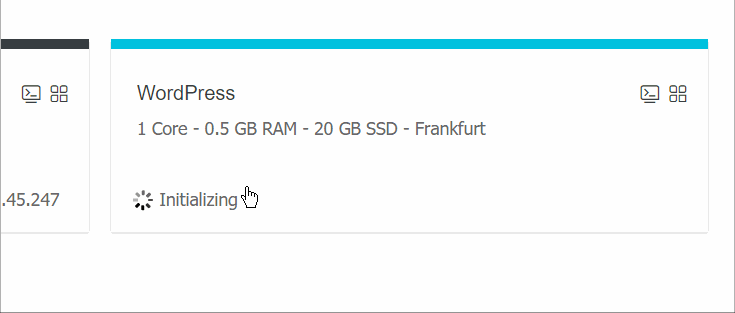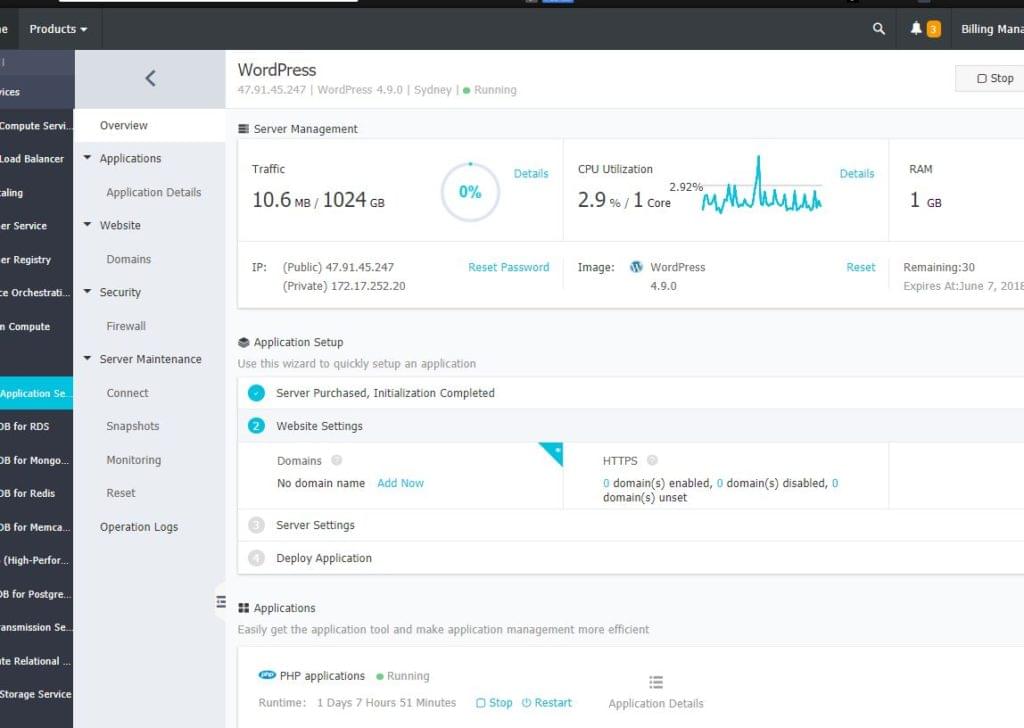When it comes to cloud hosting, Alibaba Cloud is a relatively new kid in town. We have gotten used to AWS and its plethora of options, Heroku, and Google's cloud solutions, which all either come with a level of complexity, or a price that is relatively high for anything except demo applications, or both.
Complexity in this area has lead to courses being taught and books being written about some of these solutions, like Amazon's cloud.
Developers know that all the time devoted to debugging, learning, and perfecting deployment is time not spent on developing the core solutions we are working to deploy.
When it comes to raw VPS solutions, DigitalOcean, Vultr, and Linode have been go-to vendors for some years now. Here, as well, there are tradeoffs: when one wants to deploy a high-level solution, like well-known Content Management Systems (such as Drupal or WordPress), or eCommerce solutions (such as Magento, WooCommerce, or OpenCart), they can choose a dedicated, specialized, high-profile managed hosting. These have pretty steep prices, and not much in terms of 100% dedicated resources. Alternatively one can go for a dedicated system. For one to have a guaranteed 4GB of RAM available for their web application, or guaranteed processor cores, an available system shell, or one wants to be able to switch server stack components versions, one has to go for a dedicated server or a VPS.
Shared hosting environments only go so far in terms of squeezing the last bits of performance out of your server, or choosing and optimizing components of the server stack. They don't give you ultimate control of the hosting environment, and often deliver mediocre results.
The dedicated systems that we mentioned are often the best solution for high-performing systems, and projects that care about a tuned and polished web visitor experience. They tend to be relatively affordable, they guarantee server resources, if not the entire machine in data center, but... they put a demand on the developer, or sysadmin, to set things up. If these dedicated systems come with sysadmin time and care included, they are usually not very competitive on price.
Non-managed VPS and dedicated server solutions have the best edge here, in terms of hosting costs. This is where companies like Digital Ocean, Vultr and similar hosts have blossomed. But these vendors require knowledge of Linux administration, and knowledge of the intricacies of server stacks, like LAMP, LEMP, and others.
With dedicated solutions, one has to hire sysadmins and developers to set these things up. They need to install the latest version of PHP and all of its modules, then the database and the server (like Apache or Nginx), and then there is the setup of the virtual host, SSL, debugging and compatibility issues that arise, package issues, the list goes on...
This makes dedicated hosting a non-trivial endeavor. This is where companies like Cloudways have found their niche.
Alibaba Cloud
And now there is Alibaba Cloud.
Alibaba Cloud is an ambitious vendor which offers a comprehensive spectrum of services, from CDN, cloud-based database services, big data and analytics solutions, media streaming and IoT solutions, and shared web hosting or flexible VPS solutions.
They boast their own proprietary virtualization solutions developed in-house, without the virtualization overhead, and with good resource isolation. A major known solution without the virtualization overhead so far has been OVZ, but it hasn't provided such good resource isolation. This is why its competitor technologies, KVM and XEN, have fared somewhat better with the premium range of VPS providers.
If Alibaba has indeed developed a solution with little-to-no resource overhead, but with excellent isolation, this will give them an edge on the VPS providers market.
One of Alibaba products is SAS - Simple Application Server. Since SAS builds on ECS architecture, it takes advantage of the aforementioned virtualization solutions.
Simple Application Server use the ECS I/O-optimized shared instances with CPUs, memory, operating systems, network, disks, and other services necessary to build a server.
Each user can have up to five SAS instances running.
Its goal is to find the sweet spot in servicing exactly the customers we described above - those who need price-competitive hosting solutions which offer control of the environment and a guarantee of resources.
Simplicity of Deployment
What the SAS solution boasts is the ability for everyone to launch their web application within minutes - from Alibaba's web management platform, without the need to set everything up - or even to log into the system's shell.
This is not something that established VPS vendors can boast about, for the most part.
We have tried this, and it took us a mere couple of minutes from logging into our Alibaba account to actually seeing our website live and running.
The process is painless and straightforward.
When we register for Alibaba Cloud here, we are presented with its free credit offer - Alibaba gives $300 of credit to new users. We can use it for the purpose of this tutorial - deploying a WordPress website on Simple Application Server. After we confirm our payment method, such as a credit card or PayPal, we get our starting credit activated, and we are good to go!
Now we can log into our management console, and select Simple Application Server in the left sidebar, among the Base services. When we are there, we can click "Create Server" button in the upper right corner, and we will be presented with options for selecting the server location - EU, US and Asia locations are available.

We can then select one of the prebuilt available images — apps or OS images are available (different Linux and Windows versions). For this guide, we selected the WordPress app image.
We then select the instance plan. These plans have different hardware resources available and payment plans, including monthly, quarterly, six monthly payment plan, annually and so on.

Plans available range from 0.5 to 8 GB of RAM, 1 or 2 CPU cores, and all come with SSD storage, from 20 to 80GB. Those in need of more flexibility have other solutions available that are somewhat lower-level, but offer more control, like ECS.
After we pay, we can go to the management console for our SAS instance, which will take a couple of minutes to be deployed.

After our instance is deployed, it has an entire LAMP stack installed, along with WordPress. We then go to the web management panel, which is among the best — perhaps in its level of details and options it even has an edge over the competitors, like Vultr, Digital Ocean, and others.

There are plenty of options here, and even not-so technically apt users should have an easy time finding their way around.
The post How to Deploy a WordPress Site on Alibaba Cloud SAS appeared first on SitePoint.
by Tonino Jankov via SitePoint
No comments:
Post a Comment